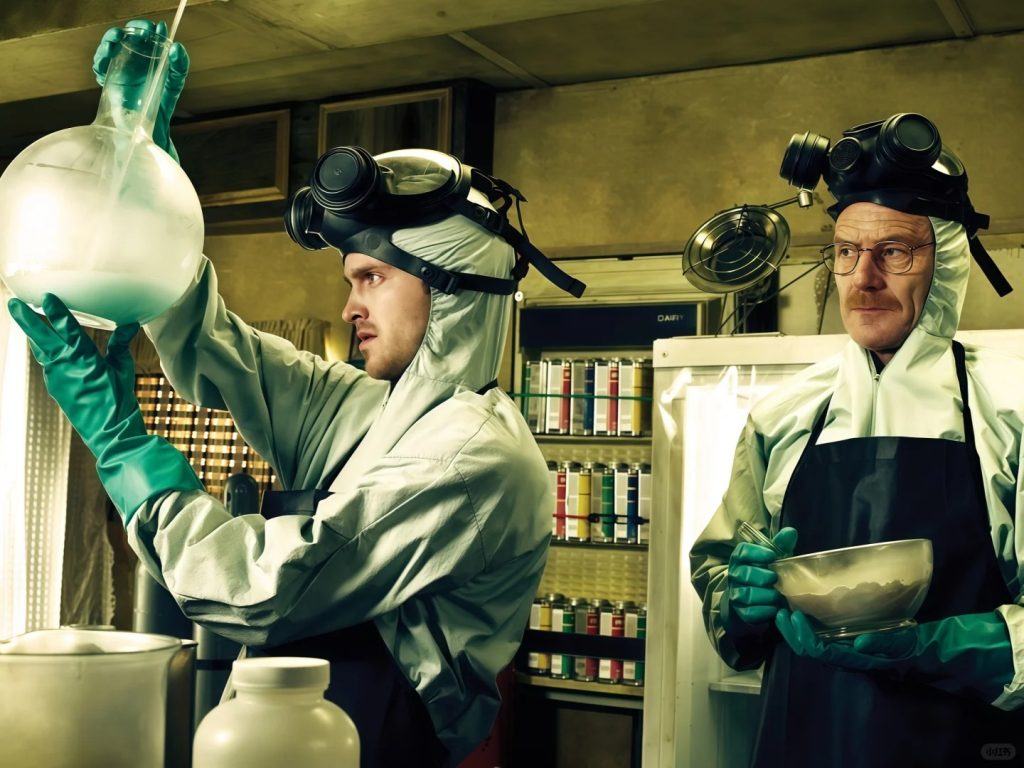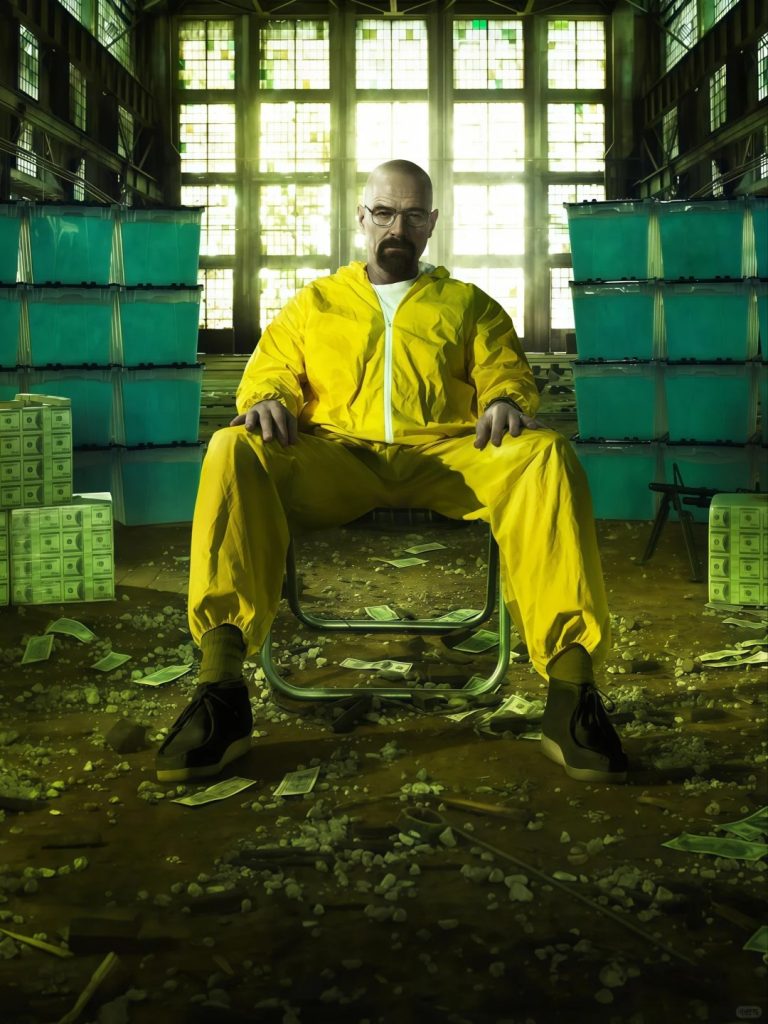Title: Breaking Bad Deep Dive: Why This “Masterpiece of American Television” Remains Unrivaled
terehiatheatre // Episode 2025-04-29
1. The Rise of a Legend: From Underdog to the Pinnacle of TV Drama
Since its debut in 2008, Breaking Bad has been hailed as a landmark of television storytelling, celebrated for its complex characters, gripping narrative, and darkly comedic tone. With a Douban score of 9.3 and a Metacritic rating of 99 (earning a Guinness World Record for the highest-rated TV series), the show redefined prestige drama. Its prequel spin-off, Better Call Saul, further solidified the legacy of the “Breaking Bad universe,” with its sixth season soaring to a 9.8 Douban score.

2. The Fall of an Antihero: Walter White’s Transformation and Moral Collapse
Walter White’s evolution from a meek high school chemistry teacher to the drug kingpin “Heisenberg” stands as one of television’s most nuanced portrayals of an antihero. His descent begins with a midlife crisis and a terminal cancer diagnosis, ostensibly driven by a desire to provide for his family. Yet, as the story unfolds, his pursuit of power and self-validation eclipses all moral boundaries.
-
Midlife Crisis and Ethical Erosion: Walter’s initial justification—family responsibility—slowly unravels as he weaponizes his scientific genius to cook pure meth, manipulate allies, and eliminate threats. His infamous confession, “I did it for me,” lays bare his true motives.
-
Symbolism and Foreshadowing: In the drama, images such as shaving hair, oranges, and remote-controlled cars are used to suggest the fate of Old Bai. For example, oranges symbolize death and secret leaks, while shaving marks his complete transformation from “Walter” to “Heisenberg”.

3. Masterful Storytelling: What Makes the Series Irresistible?
Breaking Bad thrives on its meticulous narrative craftsmanship:
-
Pacing and Tension: Each episode follows a calculated “beat sheet,” blending explosive moments (e.g., the Season 1 acid bath scene) with quieter character beats to sustain suspense.
-
Dark Humor and Tragedy: Absurd scenarios—like Walt frantically burning cash or Gus Fring’s chillingly composed demise—contrast with gut-wrenching emotional arcs, such as Jesse’s exploitation of his innate kindness.
-
Ensemble Depth: Supporting characters, from the stoic hitman Mike to the morally flexible lawyer Saul Goodman, are richly developed. Better Call Saul later expands Saul’s backstory, exploring his own tragic compromises.
4. Blurring Morality: The Gray Zone Between Good and Evil
The series dismantles simplistic notions of right and wrong, challenging viewers to confront ethical ambiguity:
-
Walter’s Self-Deception: His claim of acting “for the family” masks a hunger for control, exposing the hypocrisy of using noble intentions to justify monstrous acts.
-
Gus Fring’s Duality: A villain with ruthless precision and tragic humanity, Gus’s quest for vengeance humanizes his cold-blooded calculus.
-
Jesse Pinkman’s Redemption: The show’s moral compass, Jesse clings to his conscience—particularly in protecting children—yet repeatedly pays the price for his vulnerability.
5. Expanding the Universe: The Legacy of Better Call Saul
The prequel Better Call Saul chronicles Jimmy McGill’s transformation into the sleazy lawyer Saul Goodman, weaving in ties to Breaking Bad. Its sixth season bridges the two series with cameos from Walter and Jesse, while delving into themes of ambition and identity. Critics argue it rivals—and at times surpasses—the original in emotional depth.
6. Why Breaking Bad Demands Rewatching
-
Psychological Complexity: Beyond crime thrills, it dissects midlife despair, fractured relationships, and the seduction of power.
-
Visual Brilliance: Wide-angle shots and stark Southwestern landscapes mirror the characters’ moral desolation, while film-grade cinematography adds a timeless grit.
-
Cultural Resonance: The show critiques capitalism’s excesses, using Walter’s drug empire as a metaphor for unchecked ambition and societal decay.

Conclusion:
Breaking Bad endures because it transcends its crime saga roots to explore humanity’s darkest corners. Walter White’s journey—and the universe it spawned—forces audiences to confront uncomfortable truths about morality, agency, and the masks we wear. As Nietzsche warned, “Whoever fights monsters should see to it that in the process he does not become a monster.” This series is a mirror held up to that very abyss.
